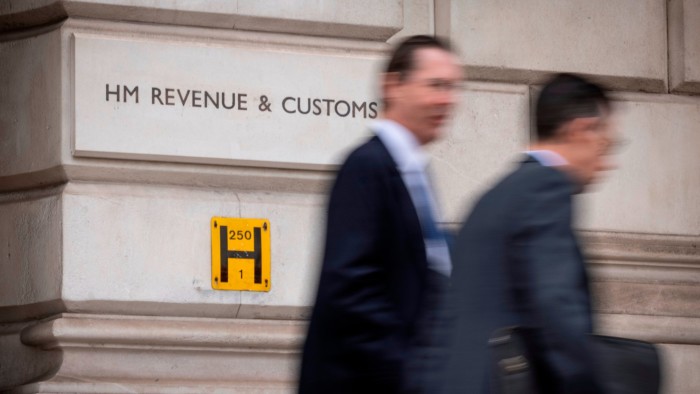Stay informed with free updates
Simply sign up to the UK tax myFT Digest — delivered directly to your inbox.
A UK special investigations team doubled its tax haul from wealthy people in 2023-24, compared with the previous year, in a crackdown on the rich.
A department at HM Revenue & Customs set up to target wealthy taxpayers netted more than £1.5bn in 2023-24, according to the latest data obtained from a freedom of information (FOI) request.
“HMRC have been set some very hard targets for extra tax collection by the chancellor. It is hard to see how they can achieve those targets without a sharp rise into tax investigations into the wealthy,” said Ian Robotham, legal director at Pinsent Masons, a law firm, which made the FOI request.
“I know from experience over the past five years, that there has been a focus from HMRC on wealthy individuals, as there is a perception and understanding that there is tax risk within the wealthier population,” added Nimesh Shah, chief executive of advisory firm Blick Rothenberg.
Wealthy people, defined by HMRC as those who either earn more than £200,000 a year or with assets of more than £2mn, paid £119bn in personal taxes in 2023-24, an average of £140,000 per person. The sum represented 25 per cent of the UK’s personal tax receipts.
The HMRC special investigations unit that raised the £1.5bn in 2023-24 is called the Wealthy and Mid-Size Business Compliance (WMBC) team.
Nearly half of the money, £652mn, collected by the WMBC in 2023-24 was brought in from a settlement with Bernie Ecclestone, the British business magnate and former motor racing executive, Shah said.
However, even without the Ecclestone settlement, the amount collected was £848mn in the 2023-24 tax year, still higher than the £713mn raised in the previous year.
The data comes on the back of a report by the National Audit Office last month that said the total collected across HMRC from wealthy taxpayers increased to £5.2bn in 2023-24 — up from £4bn in the 2022-23 tax year.
It concluded the amount of tax lost to evasion and avoidance by wealthy people could be higher than previously estimated.
Robotham said part of the rise in recent years was because HMRC has been investing in AI tools and “big data” techniques, such as its flagship Connect software system.
The powerful program cross-references business and personal tax records with other databases to establish fraudulent or undisclosed activity.
While HMRC does not divulge all the sources of information it feeds into Connect, they are thought to include details of bank interest, credit card data, Land Registry reports and travel records.
Dawn Register, tax dispute resolution partner at accountancy firm BDO, said she was not surprised by the jump in money collected after seeing a lot of “detailed cross-referencing” of clients’ tax affairs by HMRC.
“People do still underestimate the sophisticated data mining that HMRC does,” she added. “Most inquiries are data led, they’re not random. HMRC is often checking for technical errors and the wealthier the individual they find an error for, the more tax yield they’re going to get.”
She added she was regularly seeing HMRC inquiries into clients’ affairs including checks into offshore assets and tax residency status.
Tax specialists said they expect HMRC’s focus to remain on rich taxpayers, particularly as the government announced additional funding for compliance staff to tackle wealthy and offshore risks in the Spring Statement and Autumn Budget.
HMRC said: “It’s our duty to ensure everyone pays the right tax under the law, regardless of wealth or status. The government is delivering the most ambitious ever package to close the tax gap and bring in an extra £7.5bn for public services per year by 2029-30.”




